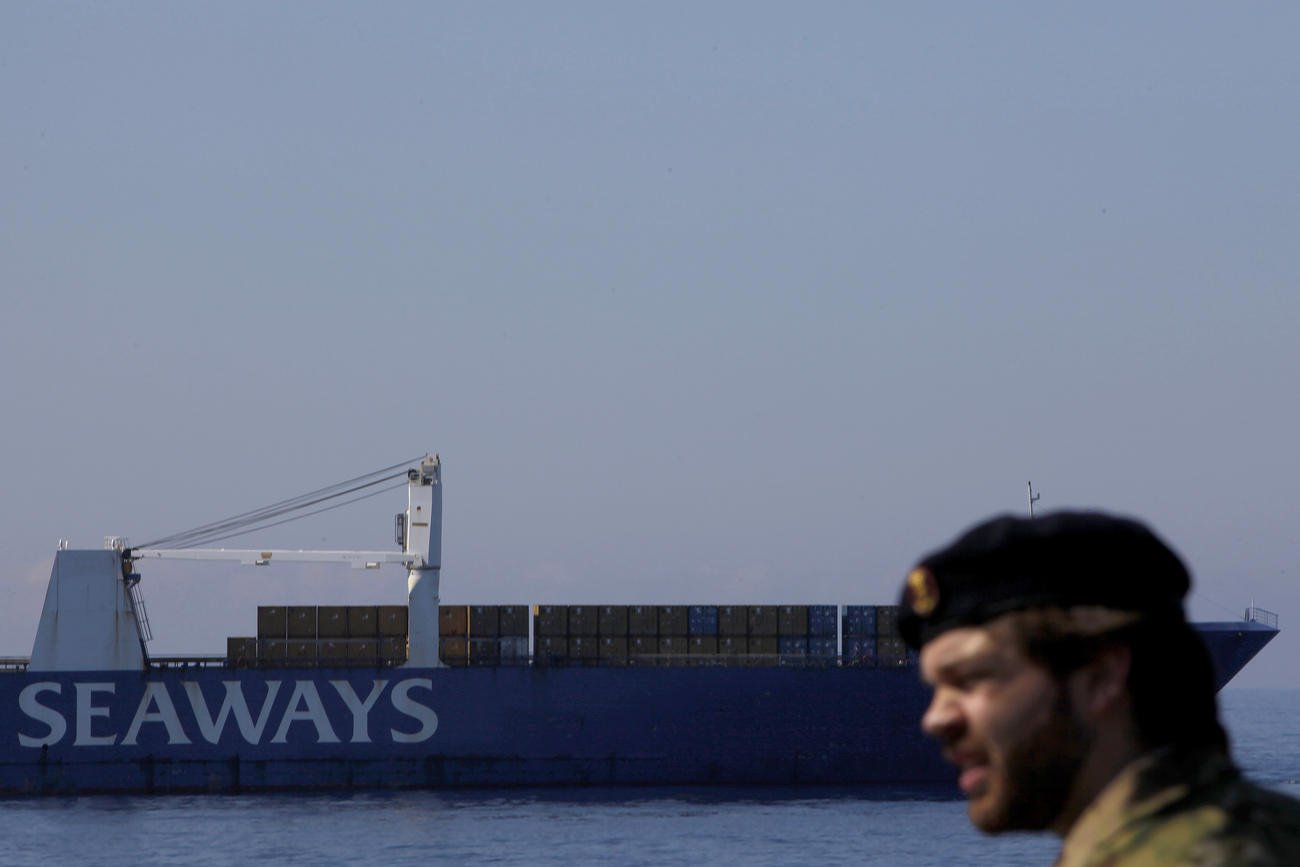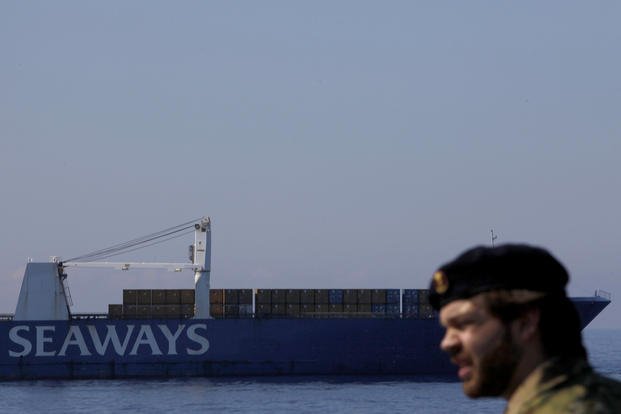

NICOSIA, Cyprus (AP) — Cyprus stands ready to help eliminate Syria’s remaining chemical weapons stockpiles and to support a search for people whose fate remains unknown after more than a decade of war, the top Cypriot diplomat said Saturday.
Foreign Minister Constantinos Kombos said Cyprus’ offer is grounded on its own past experience both with helping rid Syria of chemical weapons 11 years ago and its own ongoing, decades-old search for hundreds of people who disappeared amid fighting between Greek Cypriot and Turkish Cypriots in the 1960s and a 1974 Turkish invasion.
Cyprus in 2013 hosted the support base of a mission jointly run by the United Nations and the Organization for the Prohibition of Chemical Weapons (OPCW) to remove and dispose of Syria’s chemical weapons.
“As a neighboring country located just 65 miles from Syria, Cyprus has a vested interest in Syria’s future. Developments there will directly impact Cyprus, particularly in terms of potential new migratory flows and the risks of terrorism and extremism,” Kombos told The Associated Press in written replies to questions.
Kombos said there are “profound concerns” among his counterparts across the region over Syria’s future security, especially regarding a possible resurgence of extremist groups like Islamic State in a fragmented and polarized society.
Other challenges include new migratory flows from the country as well as ensuring the safety and rights of women and minorities including Druze, Christians, Jews and Kurds, so that the “rich mosaic of Syria is preserved.”
“This is particularly critical in light of potential social and demographic engineering disguised as “security” arrangements, which could further destabilize the country,” Kombos said.
The diplomat also pointed to the recent proliferation of narcotics production like the stimulant Captagon that is interconnected with smuggling networks involved in people and arms trafficking.
Kombos said ongoing attacks against Syria’s Kurds must stop immediately, given the role that Kurdish forces have played in combating extremist forces like the IS group in the past decade.
A Syrian-led process transitioning the country to an inclusive democracy should integrate the Kurds’ “legitimate asks” while safeguarding the country’s unity and territorial integrity.
Saleh Muslim, a member of the Kurdish Presidential Council, said in an interview that the Kurds primarily seek “equality” enshrined in rights accorded to all in any democracy.
He said a future form of governance could accord autonomy to the Kurds under some kind of federal structure.
“But the important thing is to have democratic rights for all the Syrians and including the Kurdish people,” he said.
Muslim warned that the Kurdish-majority city of Kobani, near Syria’s border with Turkey, is in “very big danger” of falling into the hands of Turkish-backed forces, and accused Turkey of trying to occupy it.
Kombos said the international community needs to ensure that the influence Turkey is trying to exert in Syria is “not going to create an even worse situation than there already is.”
“Whatever the future landscape in Syria, it will have a direct and far-reaching impact on the region, the European Union and the broader international community,” Kombos said.
© Copyright 2024 Associated Press. All rights reserved. This material may not be published, broadcast, rewritten or redistributed.
